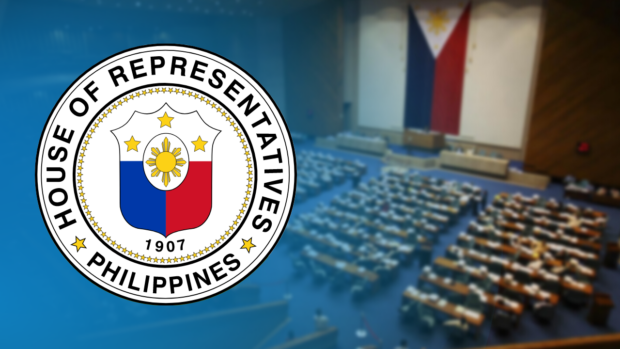
MANILA, Philippines — Leaders of the House of Representatives have maintained that amending the 1987 Constitution’s economic provisions is essential to the country’s growth as deliberation of Resolution of Both Houses (RBH) No. 7 starts at the plenary level.
In their separate sponsorship speeches at Monday’s session, Senior Deputy Speaker Aurelio Gonzales Jr., Majority Leader Manuel Jose Dalipe, and Cagayan de Oro 2nd District Rep. Rufus Rodriguez all highlighted the importance of economic charter change in the context of ushering progress in the country.
RBH No. 7, which proposes amendments to three economic provisions, is at the plenary for deliberations before being voted upon for second reading approval.
“The proposed changes to certain economic provisions of the 1987 Constitution of the Republic of the Philippines are reforms that are essential to propel our nation and adapt in a fast-changing global environment. We focus on key areas like public utilities, education, and advertising, to enable our country to prosper in an increasingly interconnected world,” Dalipe said.
“With the increasing interdependence of world cultures and economies, the Philippines cannot remain indifferent. We must adapt and take advantage of the benefits that economic globalization offers and the positive effects it may bring to our country and the Filipino people,” he added.
Rodriguez meanwhile cited data showing the Philippines lagging in terms of attracting foreign direct investments (FDIs) compared to the other countries in the Asean.
“RBH 7 is urgently needed for even as we speak, while we tarry and bide our time in introducing these amendments, here in the Philippines we have made sure that we will act on this now. As the highest policy-making body of the land, so much so that we are dealing with the paramount law of this country, we base our decisions, Mr. Speaker, based on empirical data,” Rodriguez said.
“The numbers do not lie. They speak for themselves […] this shows Mr. Speaker the flows of inward [FDIs] to Asean countries [… And you can see here, Indonesia for 2022 received US$22.11 billion, Malaysia is US$17.09, Singapore has US$141.18 billion, Thailand has US$11.21 billion, Vietnam has US$17.89 billion [FDI], look at the Philippines, very alarming Mr. Speaker, because if you see these inflows, clearly the Philippines has only US$9.36 billion. Certainly among the last six countries, we’re only better than Myanmar and Laos,” he added.
The Cagayan de Oro lawmaker also stressed that while there is an urgent need to amend the 1987 Constitution, no political provisions would be touched — noting that RBH No. 7, which is mimicked from the Senate’s RBH No. 6, still focuses on three economic amendments.
RBH No. 7 was approved at the committee level last March 6, after six hearings conducted by the committee of the whole. It proposes amendments to the Constitution by adding the phrase “unless otherwise provided by law” to these three provisions:
- Section 11 of Article XII (National Patrimony and Economy), where the phrase “unless otherwise provided by law” is inserted in the provision that bars foreign ownership of a public utility shall except in a case where 60 percent of the total capital belongs to Filipino citizens
- Section 4 of Article XIV (Education, Science and Technology, Arts, Culture, and Sports) where the phrase “unless otherwise provided by law” is inserted in the provision that bars foreign ownership of basic educational institutions except in a case where 60 percent of the total capital belongs to Filipino citizens.
- Section 11 of Article XVI (General Provisions) where the phrase “unless otherwise provided by law” is inserted in two portions: first, the provision that bars foreign ownership in the advertising industry except in a case where 70 percent of the total capital belongs to Filipino citizens; and in the provision that limits foreign investors participation in entities to how much their capital share is
If the proposed amendments are approved by the House and the Senate and are ratified in a plebiscite, it would allow Congress to pass laws that would prescribe the rate of foreign ownership for these industries.